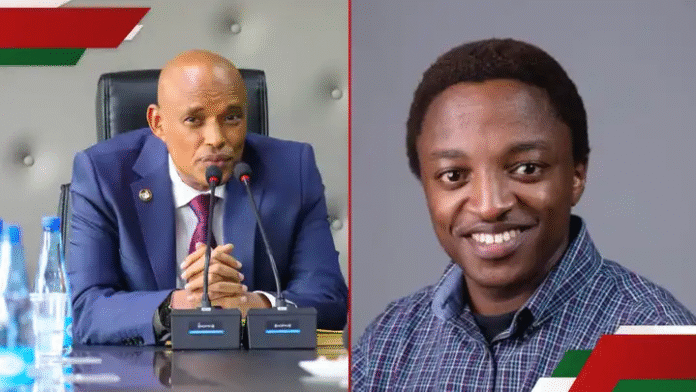
The National Police Service (NPS) has accused Ndiangui Kinyagia, who resurfaced on Thursday after days of reported disappearance, of faking his own abduction to mislead the public and tarnish the image of law enforcement.
In a press statement issued on July 3, NPS confirmed that Kinyagia, who had been widely reported missing, made an appearance in court on Thursday morning. His alleged disappearance had sparked widespread concern and backlash, with many social media users accusing the police of abducting him.
However, the police have maintained that Kinyagia was never in their custody and have now labelled him “a person of interest.” He has been urged to present himself at the Directorate of Criminal Investigations (DCI) headquarters to record a statement.
“The Service reiterates its earlier response that Ndiangui Kinyagia was not in police custody,” read the statement signed by NPS Spokesperson Mugi R. Kiyanga. “We take great exception to the emerging trend whereby individuals feign abduction and provide false information to the police, intending to generate a misleading narrative that exploits public outrage.”
The NPS condemned what it called a growing practice of stage-managed abductions, arguing that such incidents damage public trust, provoke unnecessary alarm, and obstruct justice.
“These criminal acts undermine the integrity of our law enforcement efforts, damage the reputation of the National Police Service, and cause anxiety to the public,” the statement added.
The police further warned that staging abductions and giving false information to officers are criminal offences punishable under Kenyan law. They called on the public to refrain from engaging in such acts, noting that they were committed to operating within the law and upholding constitutional values.
Kinyagia’s case has been among several high-profile disappearances in recent weeks that have raised concerns about enforced disappearances and police accountability. The fresh twist from the NPS is likely to stir further debate and scrutiny from the public and civil society groups.






